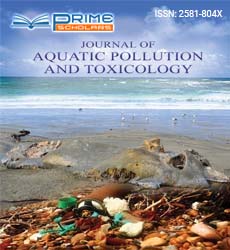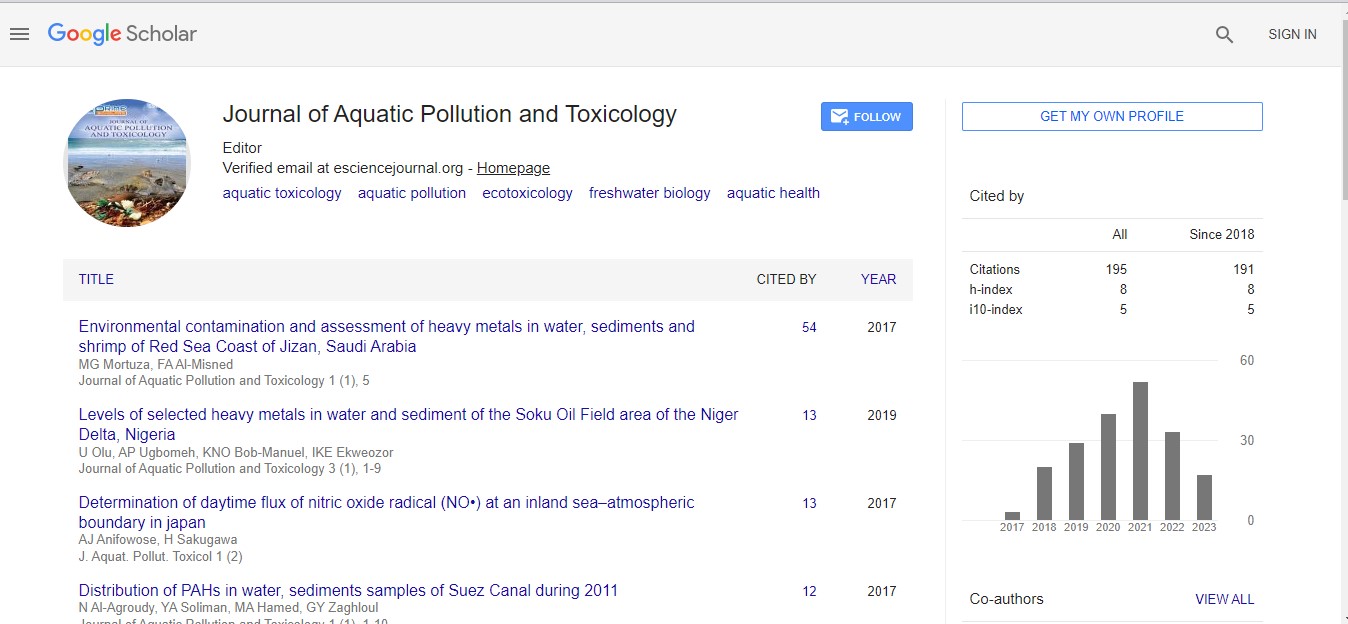Commentary - (2023) Volume 7, Issue 4
Understanding the Impact of Oil Spills and On-going Efforts to their Consequences
Samuel Clark*
Department of Oceanography Sciences, Rice University, USA
*Correspondence:
Samuel Clark,
Department of Oceanography Sciences, Rice University,
USA,
Email:
Received: 29-Nov-2023, Manuscript No. IPJAPT-24-18932;
Editor assigned: 01-Dec-2023, Pre QC No. IPJAPT-24-18932 (PQ);
Reviewed: 15-Dec-2023, QC No. IPJAPT-24-18932;
Revised: 20-Dec-2023, Manuscript No. IPJAPT-24-18932 (R);
Published:
27-Dec-2023, DOI: 10.21767/2581-804X-7.4.40
Description
Oil spills represent environmental disasters with far-reaching
consequences, affecting marine ecosystems, wildlife, and
human communities. These incidents, often caused by
human error, equipment failure, or natural disasters, have the
potential to cause significant ecological damage. In this article,
we will delve into the complexities of oil spills, examining their
causes, immediate effects, long-term impact, and on-going
efforts to mitigate their consequences. The majority of oil
spills are attributed to human error, often occurring during the
transport, extraction, or processing of oil. Accidental releases
during oil tanker operations, pipeline ruptures, and offshore
drilling mishaps contribute to these spills. Mechanical failures
in oil extraction and transportation equipment, such as valves,
pipelines, and tankers, can lead to oil spills. Aging infrastructure
and insufficient maintenance increase the risk of equipmentrelated
spills. Natural disasters, such as hurricanes, earthquakes,
or tsunamis, can rupture pipelines, damage oil rigs, or lead to
the sinking of oil tankers. These events exacerbate the risk of
oil spills in vulnerable regions. Deliberate acts of sabotage, such
as intentional damage to oil infrastructure or maritime vessels,
can result in oil spills. Accidents during oil exploration and
production activities also contribute to the occurrence of spills.
Oil spills have immediate and devastating effects on marine life.
The oil coats marine organisms, disrupting their ability to move,
feed, and reproduce. Fish, shellfish, and marine mammals may
suffer from toxic exposure and habitat degradation. Coastal
and migratory birds are particularly vulnerable to oil spills.
When oil comes into contact with bird feathers, it reduces their
waterproofing ability, leading to hypothermia, drowning, and
contamination through ingestion while preening. Oil spills can
have profound effects on coastal ecosystems, mangroves, and
coral reefs. The oil coats vegetation, disrupts sediment stability,
and damages habitats critical for the survival of various species.
Fishing industries and coastal economies are severely impacted
by oil spills. The contamination of fishery resources leads to the
closure of fishing grounds, resulting in economic losses for local
communities dependent on seafood production. Oil spills can
pose health risks to humans, especially those living in affected
coastal areas. Contact with contaminated water, consumption
of contaminated seafood, and inhalation of oil fumes can lead
to various health issues. Even after the visible signs of an oil
spill have diminished, residual oil may persist in sediments and
water. Storms, tides, and natural processes can re suspend
this oil, leading to on-going ecological impacts. The long-term
exposure of marine life to oil residues can result in chronic
health effects. Reduced reproductive success, developmental
abnormalities, and compromised immune systems are observed
in species living in oil-affected areas. Through a process known
as biological magnification, toxins present in oil can accumulate
in the food chain. Predatory species at higher trophic levels
may experience higher concentrations of contaminants, posing
risks to their health and the health of those consuming them.
Oil spills disrupt ecosystems by altering food webs, reducing
biodiversity, and causing shifts in community structure.
Acknowledgement
None.
Conflict Of Interest
The author declares there is no conflict of interest in publishing
this article.
Citation: Clark S (2023) Understanding the Impact of Oil Spills and On-going Efforts to their Consequences. J Aquat Pollut Toxicol. 7:40.
Copyright: © 2023 Clark S. This is an open-access article distributed under the terms of the Creative Commons Attribution License, which permits unrestricted use, distribution, and reproduction in any medium, provided the original author and source are credited.

